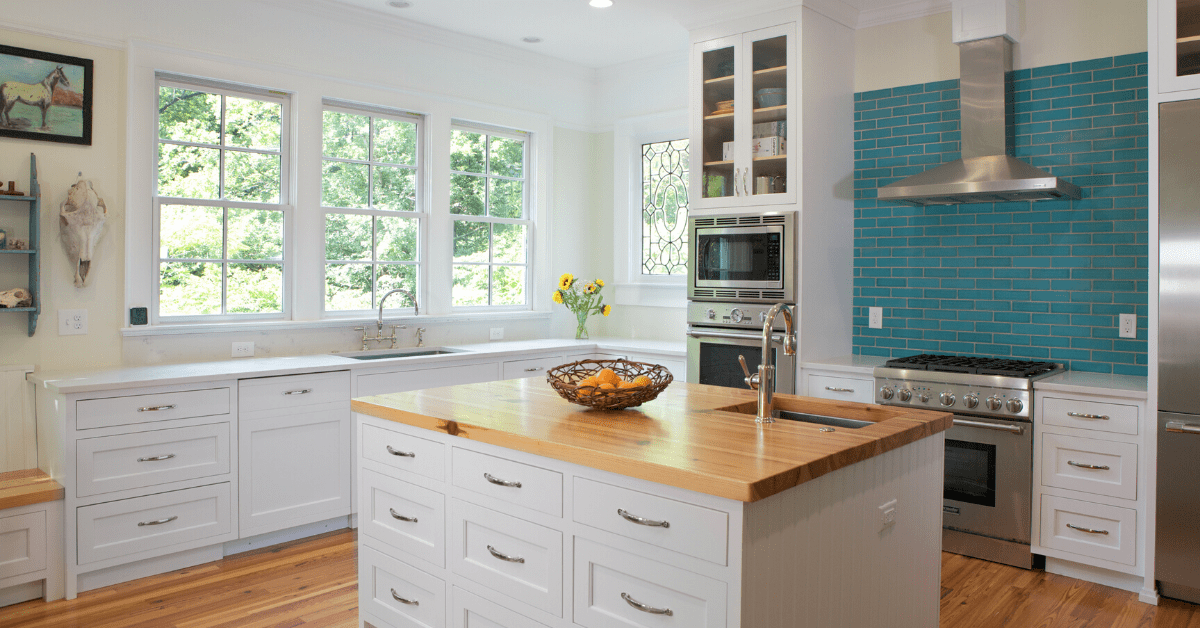What is the ROI of a Kitchen Remodel in Atlanta, GA?
Kitchen renovations are consistently ranked among the most financially advantageous investments for substantive home remodels. But what exactly is the number breakdown on the initial cost of a kitchen remodel and its overall return?
National Averages
According to U.S. News and World Report, national averages for kitchen remodel returns come in at 66%. Although the full cost is not recouped, real estate agents often advise home buyers to go ahead and make the investment since updated kitchens are among the first features home buyers look for and are even coming to expect.
Upscale Kitchen Remodel Cost in Atlanta
If you're planning to remodel a kitchen in an older Atlanta home—especially a kitchen in a historic home, the odds are that you're going to need more than a superficial facelift. You'll be looking to add comfort, convenience, and functionality. A major upscale kitchen remodel would be carried out with the following assumptions.
Update an outmoded 200-square-foot kitchen with 30 linear feet of top-of-the-line custom cabinets with built-in sliding shelves and other interior accessories. Include stone countertops with a backsplash that incorporates imported ceramic or glass tile. The cost also assumes installing a built-in refrigerator, a commercial-grade cooktop with vented hood, a wall oven, and a built-in microwave unit.
New general and task lighting would also be installed, including low voltage under cabinet lights. Finally, the project assumes the installation of tile or similar flooring that looks like wood. In the Atlanta area, a major upscale kitchen remodel such as this would typically cost $131,669. The ROI on this type of project is typically 66.7 percent.
(The figures cited here come from the Remodeling 2019 Cost vs. Value Report (www.costvsvalue.com).
Download the 2020 Atlanta Remodeling Cost Report [PDF] for free.
Additional Factors
While higher-end kitchen renovations offer a barely lower ROI than midrange remodels, keep in mind that spending a little more to accomplish your true goals often pays off in the long run. Investing in higher quality materials means less maintenance and a longer duration of renovation satisfaction.
If you plan to resell, prospective home buyers will be likely to pay more overall for a home with an outstanding kitchen than one with a mediocre finish. If you plan to keep your home, you will want to feel comfortable in what is potentially the most important room and to make it a place where you will spend time with family, friends, and food.
Individual Results May Vary
Obviously, no two remodeling or renovation projects are identical. The figures above are intended to present an approximate idea of the costs. This is simply the first step to help you plan. Let’s take a quick look at some of the things that can have a significant impact on your specific costs.
The size and complexity of the project can have a significant impact on the cost. That is particularly true in older homes where additional work has to be done to ensure that everything is up to code. If you’re planning to expand the size of your kitchen or redesign it to better suit your needs, that will also increase the price.
What is Most Likely to Impact Your ROI?
The cost of your particular remodeling project isn’t the only thing that can vary. The Return on Investment (ROI) you can expect from making an improvement isn’t set in stone, either. The ROI figures you see above are (again) approximations based on certain specifications. What are the things most likely to impact your ROI?
Materials Used
The materials you choose for your new kitchen (for flooring, cabinets, countertops, and backsplashes) can also affect the final price of your remodel. The same is true of the appliances you select.
Market Conditions
Naturally, you can’t control market conditions. Right now, the housing market is good. And kitchen upgrades are one of the first things buyers look at.
Customization
A great thing about remodeling your kitchen is that you get to re-create it to your exact specifications and sense of style. Over-doing the customization may not pay off financially if a future buyer doesn’t share your sense of what’s important or stylish. So, it may make sense to avoid over-customization.
The flip side to that thinking is that you probably aren’t remodeling your kitchen for the sole purpose of selling your home. The real question is what kind of value the renovation delivers for the money you spend. If spending a bit more to customize your kitchen to make it more comfortable and convenient for your family, it may not matter as much to you what your ROI is.


